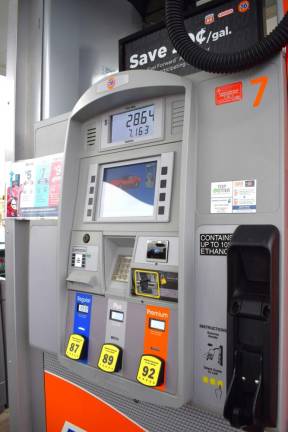Audit finds county failed to test weights and measuring devices as required
Goshen. The NYS comptroller recommends the county perform the required testing in accordance with state regulations.

A new audit issued by the NYS Comptroller’s Office claims the Orange County Department of Weights and Measures did not complete all required testing of weighing and measuring devices or maintain complete inspection, inventory, and investigation records as required by state laws and regulations. The comptroller noted that, as a result, consumers may be “at increased risk of paying more than necessary for goods and services.”
The audit allegedly found that the county director of Weights and Measures did not monitor or update the database the Department uses as a “master list” of businesses with weighing and measuring devices, and the list also had several errors and omissions. Instead of working with other county departments to determine whether there were new businesses utilizing these devices in operation, the county inspectors reportedly added business they found while driving to locations to conduct testing.
Plus, 165 of the 446 weighing/measuring devices in operation in the county were not inspected as required. The audit also allegedly found that two of 19 consumer complaints did not include documentation to show the results of the Department’s investigation.
The director was accused of not developing and implementing procedures for periodic price accuracy testing. “The Director told [the auditors] the Department only performed price accuracy testing if there was a complaint, and generally they only tested the items the consumer indicated were incorrect,” the report noted. Using the Department’s inspection results, auditors found that 94% of the items tested were accurately priced, which is below the 98% standard specified under current regulations.
As a result, the state recommends Orange County “perform required testing in accordance with New York State Department of Agriculture and Markets regulations and AML,” and “maintain complete records, including an inventory of businesses and consumer complaints.” The audit period ran from January 1, 2022, to September 30, 2023.
The county has reportedly agreed with the findings and plans to take corrective actions.
The weighing and measuring devices covered under the audit include items like computing scales, petroleum pumps, linear measuring devices (like for rope at a hardware store), timing devices (such as dryers in a laundromat), and vehicle scales. The audit found that the director did not test any timing devices “because he was not aware he was supposed to do so.”
For one gas station included in the inspection, the director told the auditors that the gas/diesel petroleum pumps did not have inspection seals because they failed the inspections. Per the report, “According to the inspection documentation, one pump was out of tolerance in favor of the business (i.e. dispensing less fuel than expected) and the other four pumps’ displays were not readable. Inspectors issued a violation to stop using the out of tolerance pump until it was repaired, but no violations were issued for the other pumps because the displays did not impact the amount of fuel dispensed.” However, during their inspection, auditors found that all five pumps were in operation.
Additionally, the county director had noted that eight weighing devices were not tested “because inspectors overlooked them during their inspections of those businesses.” And one of those devices was last inspected in February of 2022. For one vehicle scale device, the director noted that it had not been inspected since 2013. Each such device is supposed to be tested annually.
On a positive note, the audit also included the sampling of retail fuel pumps to ensure fuel octane ratings were accurate. Of the 15 samples reviewed, the octane rating was “at least equal to the amount reported on the pump for all 15 tests.”
The full results of the audit can be found on the state comptroller’s office website.